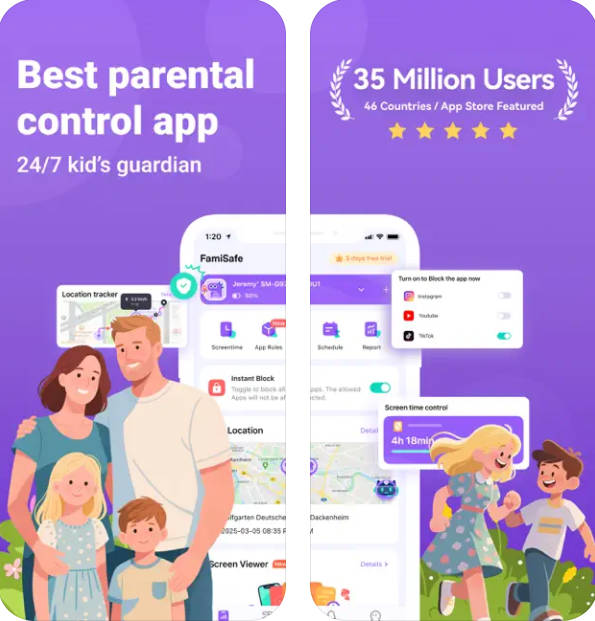Key Takeaways ✅
- IIRC meaning: “If I Remember/Recall Correctly.” It’s a polite hedge that signals small uncertainty.
- Tone & context: Natural in casual chats (text, Discord, Reddit); write it out in formal emails or schoolwork.
- Common mix‑ups: It’s not the same as IDK (“I don’t know”); IIRC means “I think I remember this.”
- Parent tip: Read the whole conversation, ask with curiosity, and agree on light‑touch safety settings together.
Ever glanced at your child's phone screen and felt like you were trying to decipher an ancient, secret code? A jumble of letters like “lol”, “brb”, and “smh” might be familiar, but new ones are popping up all the time. If you've recently seen “iirc” in a text or social post and found yourself stumped, you're not alone. The digital language of teens is fast, context‑heavy, and full of helpful shorthand. This guide bridges the gap by explaining exactly what iirc means, where it came from, how teens use it, and how that understanding can support calmer conversations and safer online habits at home.
In This Article
- Part 1. What Does IIRC Mean?
- Part 2. How to Use IIRC in Slang and Texting
- Part 3. How to Talk with Your Kid About Slang
- Part 4. IIRC vs. Similar Acronyms (Quick Table)
- Part 5. Common Misunderstandings & Etiquette
Part 1. What Does IIRC Mean?
IIRC means “If I Remember Correctly” (or “If I Recall Correctly”). In practice, it’s a softener—a quick way to signal, “I’m pretty sure, but this is from memory.” The phrase keeps conversations polite and realistic about how reliable memory can be, much like saying “I think…” or “As far as I know…”. You’ll see it lowercase (iirc) in casual chats and uppercase (IIRC) in forums or posts where all‑caps acronyms are common. Both forms are widely understood; consistency matters more than capitalization.
Because iirc is a hedge, it sits between certainty and not knowing. It’s not a shrug of ignorance—that would be IDK (“I don’t know”). Instead, it helps someone share a detail while acknowledging it might need a double‑check. That small dose of humility makes the tone friendlier, especially in fast, text‑only conversations where nuance is easy to lose.
Background: Where Did IIRC Come From?
The acronym goes back to early internet communities such as Usenet and Internet Relay Chat (IRC) in the 1990s. Those spaces valued brevity; people traded long sentences for compact acronyms to keep discussions moving. Abbreviations like LOL, BRB, and IIRC became part of the web’s common language and carried forward into email, forums, group chats, and social platforms. As communication moved from dial‑up desktops to smartphones, the habit of trimming phrases to a few letters stuck around because it saves time and makes quick messages easier to send on the go.
Part 2. How to Use IIRC in Slang and Texting
Expect iirc in casual, low‑stakes chats where one detail needs confirming. It works in planning, homework, gaming, clubs, and fandoms:
- Making plans: “The game starts at 7 pm, iirc. I’ll double‑check the tickets.”
- School reminders: “IIRC, the history project is due this Friday.”
- Shared memories: “We went to that beach two summers ago, iirc.”
- Clubs & activities: “iirc, the robotics meeting swaps to Tuesdays next month.”
- Gaming/fandom: “That character’s backstory changed in season 3, iirc.”
When Not to Use “iirc” (and What to Say Instead)
- Formal contexts: Write the full phrase (“If I remember correctly…”) or cite a source.
- High‑stakes details: Verify first, then write: “The deadline is Friday; I confirmed in the portal.”
- With unfamiliar adults/teachers: Acronyms can feel abrupt—plain English reads clearer and more respectful.
Quick rewrites 📝
EMAIL (formal) Weak: IIRC the meeting is at 3 pm. Better: If I remember correctly, the meeting is at 3 PM. I’ll confirm with the calendar. TEXT (casual) Neutral: The game starts at 7, iirc — I’ll double‑check.
Part 3. How to Talk with Your Kid About Slang
Understanding acronyms like iirc helps, but connection beats translation. Keep a light, curious tone that invites dialogue rather than defensiveness.
- Stay curious, not critical. “I saw ‘iirc’—what’s it short for?” turns confusion into conversation.
- Read context, not just keywords. Acronyms rarely tell the whole story. Watch overall tone and behavior changes.
- Agree on a check‑in plan. Define when a parent should ask questions (e.g., new friends, secretive behavior, drastic mood shifts).
- Model clarity. Show how you switch between casual shorthand and respectful full phrases in emails or calls.
Prefer a light‑touch safety net that supports conversations? Tools like FamiSafe let you set custom keyword alerts (for bullying or self‑harm euphemisms) and gentle Web Filter/Screen Time limits. It doesn’t expose every message—just nudges you when something concerning appears—so you can talk first, not snoop.

Part 4. IIRC vs. Similar Acronyms (Quick Table)
Part 5. Common Misunderstandings & Etiquette
Because iirc is a tiny word with big nuance, it’s easy to misread in fast chats. A few ground rules keep things clear and kind:
- Not sarcasm by default. Most of the time it’s literal and polite. If a message sounds snarky, look at the sender’s usual tone.
- Don’t overuse hedges. If every sentence is softened, people may assume you’re unsure about everything. Mix clarity with humility.
- Verify when accuracy matters. Exams, deadlines, payments—don’t lean on memory. Confirm and state the source.
- Match the room. Classroom email? Use the full phrase. Group chat?
iircis fine.
Myth vs. Fact 🧠
- Myth: “iirc means ‘I’m not responsible if I’m wrong.’” Fact: It’s a courtesy hedge, not a disclaimer.
- Myth: “Lowercase is rude.” Fact: Lowercase is simply casual; tone depends on context, not capitalization.
- Myth: “Teens use iirc to avoid effort.” Fact: Teens often add it to be considerate while chatting quickly.
If you prefer a light‑touch safety net to support these conversations, tools like FamiSafe let you set custom keyword alerts (for bullying or self‑harm euphemisms) across popular apps, plus gentle Web Filter and Screen Time limits. It doesn’t show every message—just nudges you when something concerning appears—so you can talk first, not snoop.
Conclusion
In short, iirc means “If I Remember (or Recall) Correctly.” It’s a small hedge—usually harmless, often polite. The bigger win is using moments like this to connect: ask what an acronym means, listen for tone and context, and agree on guardrails that keep your family’s digital life safer. Language evolves quickly, but curiosity and trust never go out of style.
Frequently Asked Questions
-
Is “iirc” formal or informal?
Informal. Use it in chats and casual posts. For school or professional emails, write the phrase out (e.g., “If I remember correctly…”) or verify and cite. -
What’s the difference between IIRC and AFAIK?
IIRC relies on memory (“If I Remember/Recall Correctly”); AFAIK relies on current knowledge (“As Far As I Know”). Both hedge certainty, but from different angles. -
When should I avoid using “iirc”?
In high‑stakes or formal contexts (deadlines, payments, teacher emails). Verify first, then state the fact or cite the source. -
What can I use instead of “iirc” in professional writing?
Use plain English: “If I remember correctly…”, “Based on my notes…”. When accuracy matters, confirm and include the source.
Written by FamiSafe Editorial Team · Reviewed for clarity and online‑safety accuracy · Updated Aug 25, 2025


